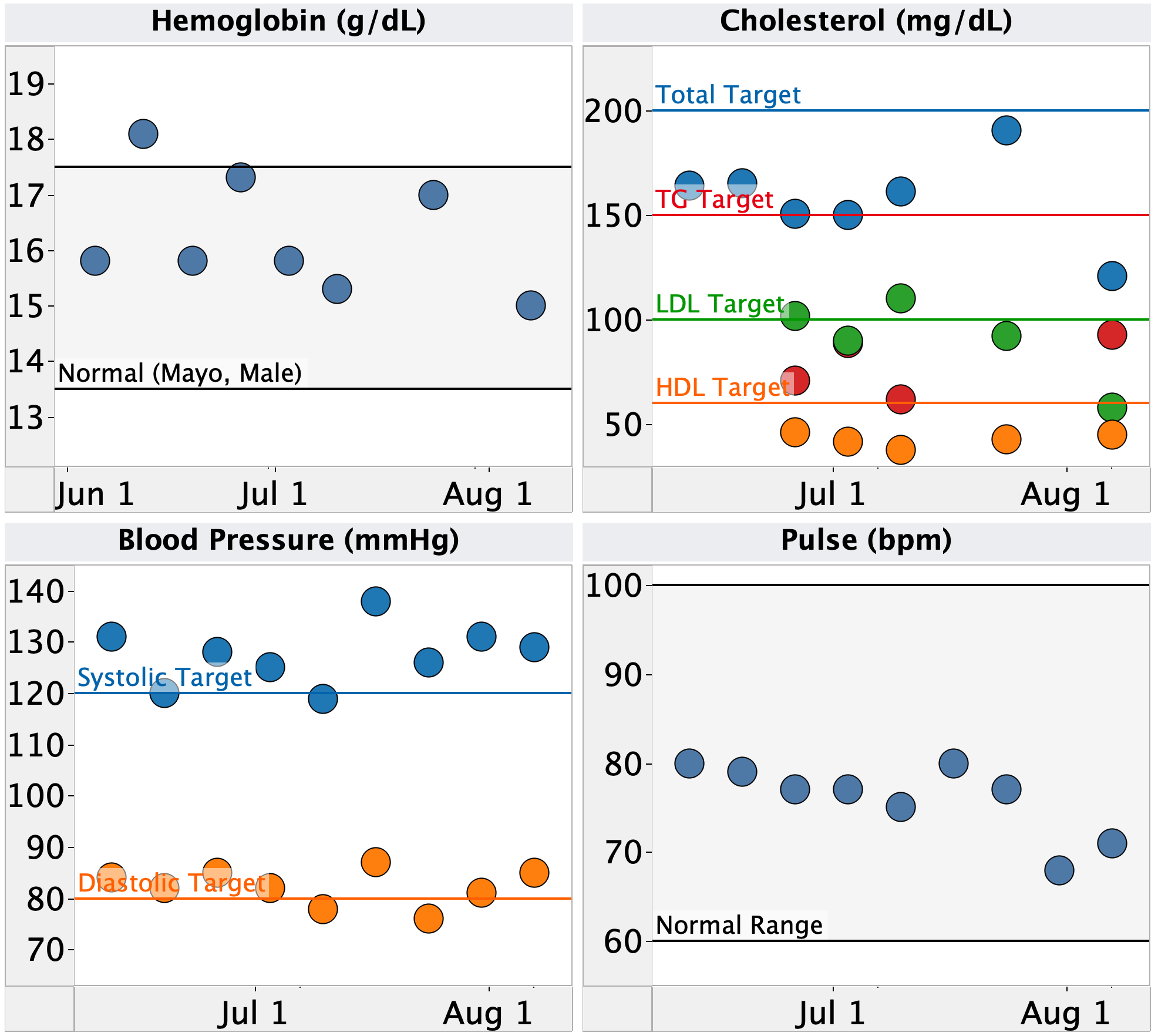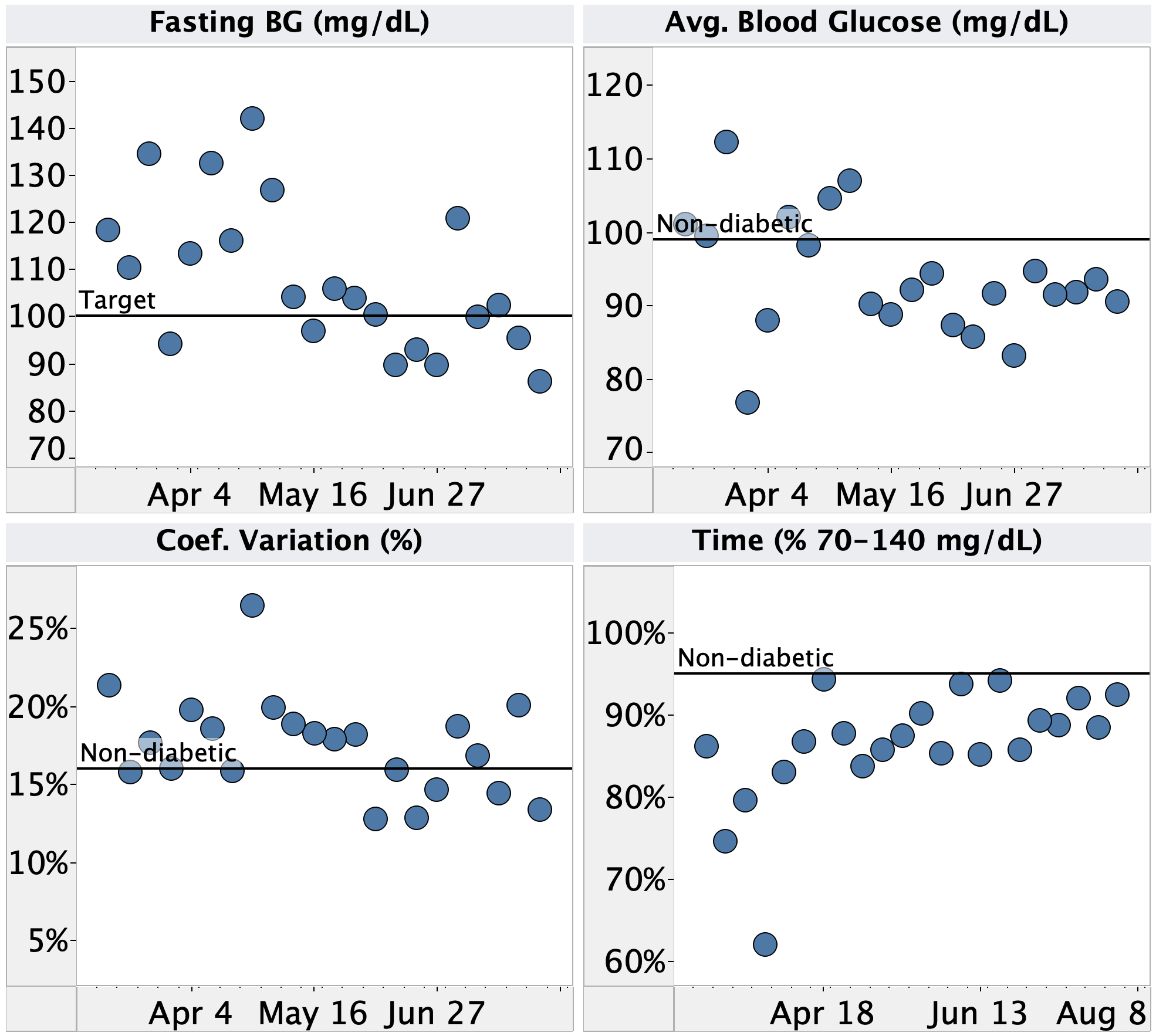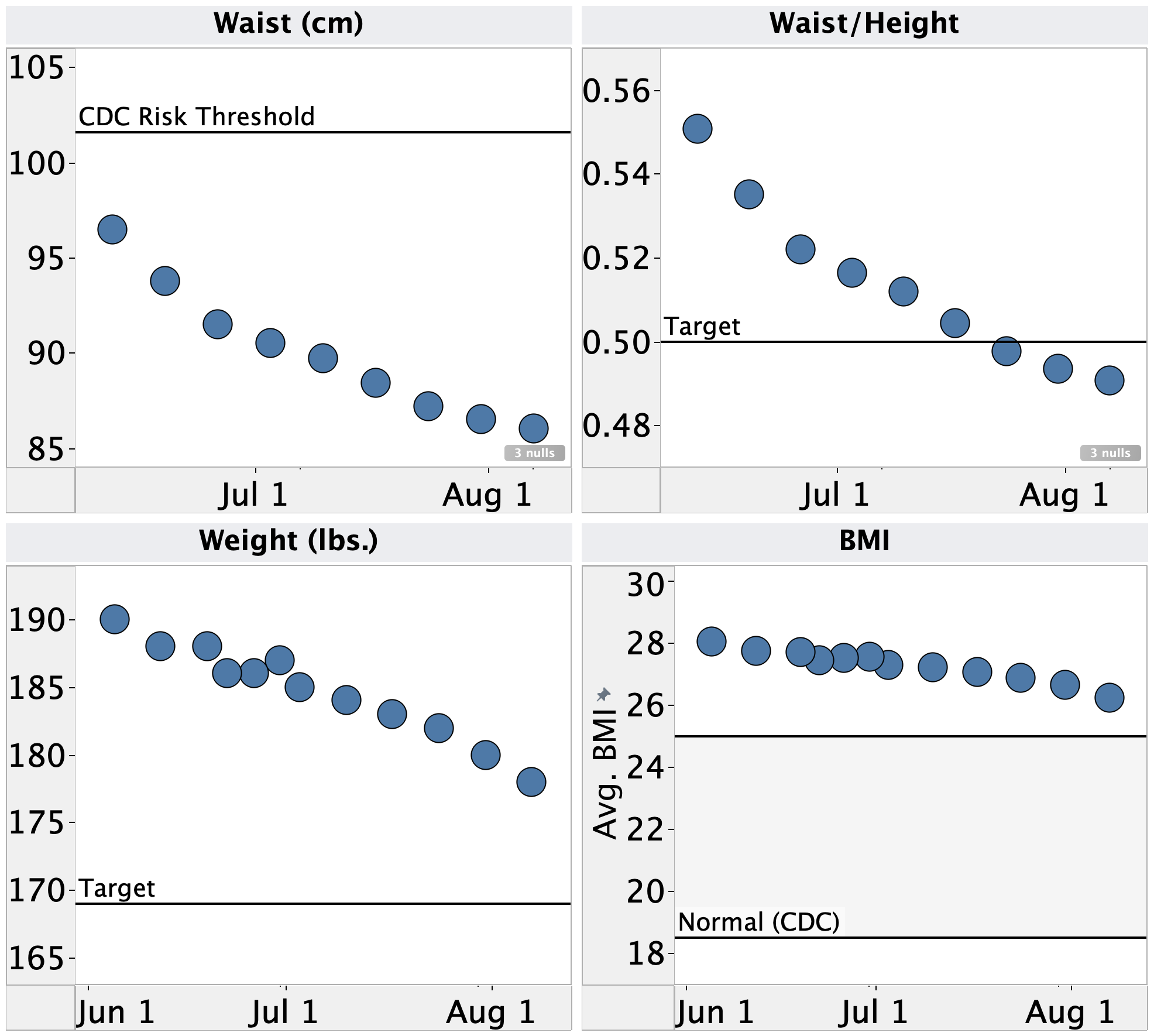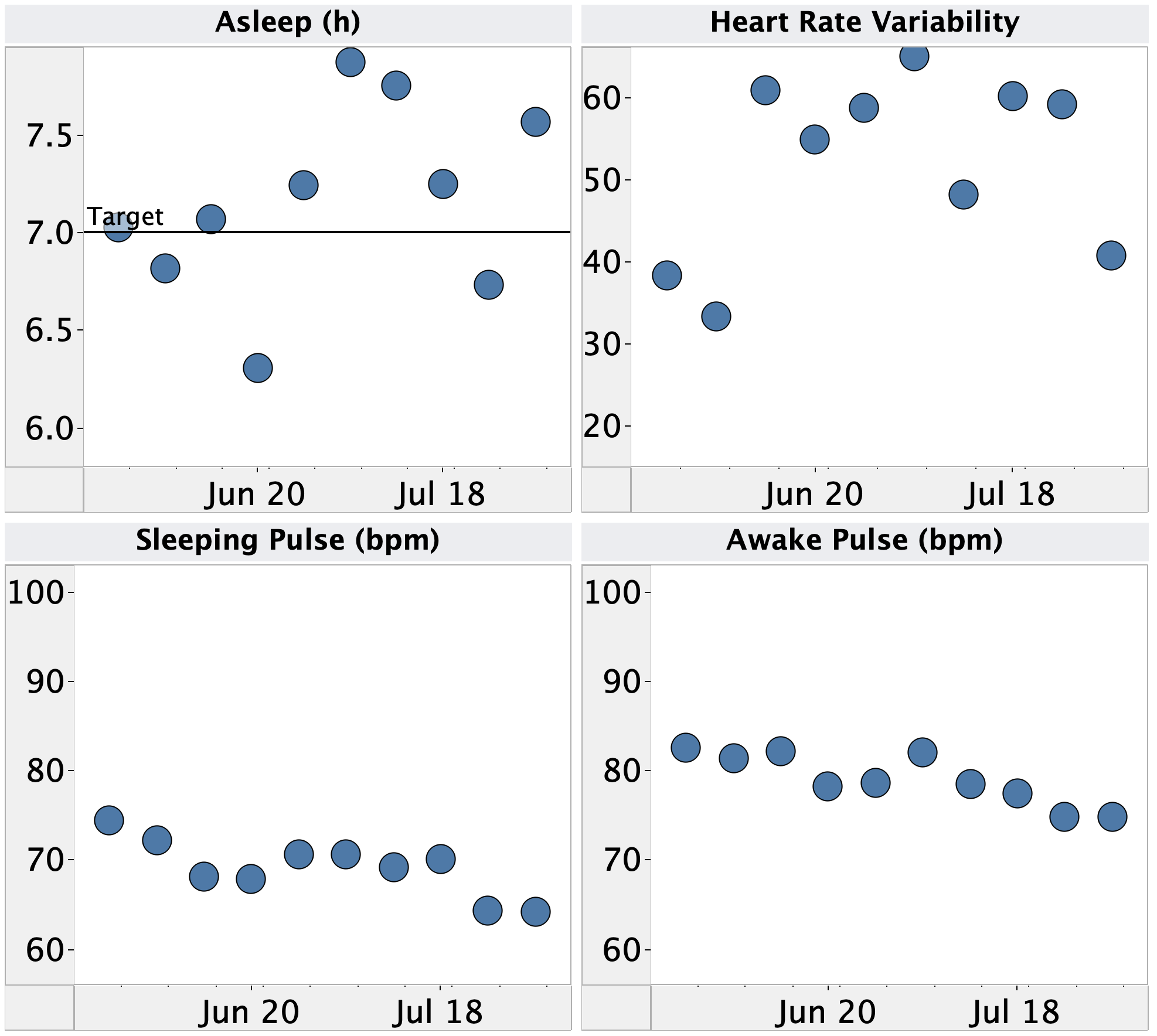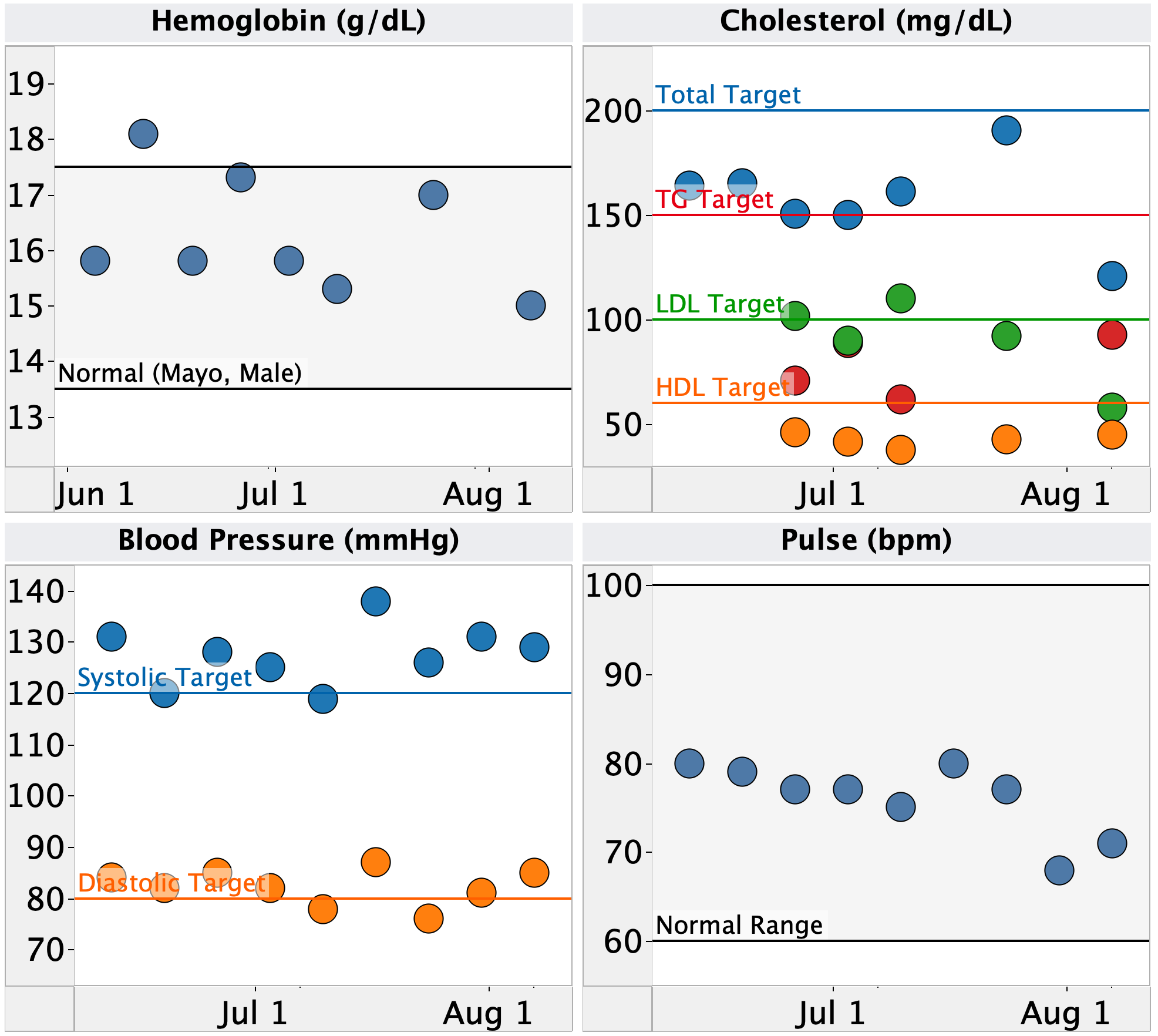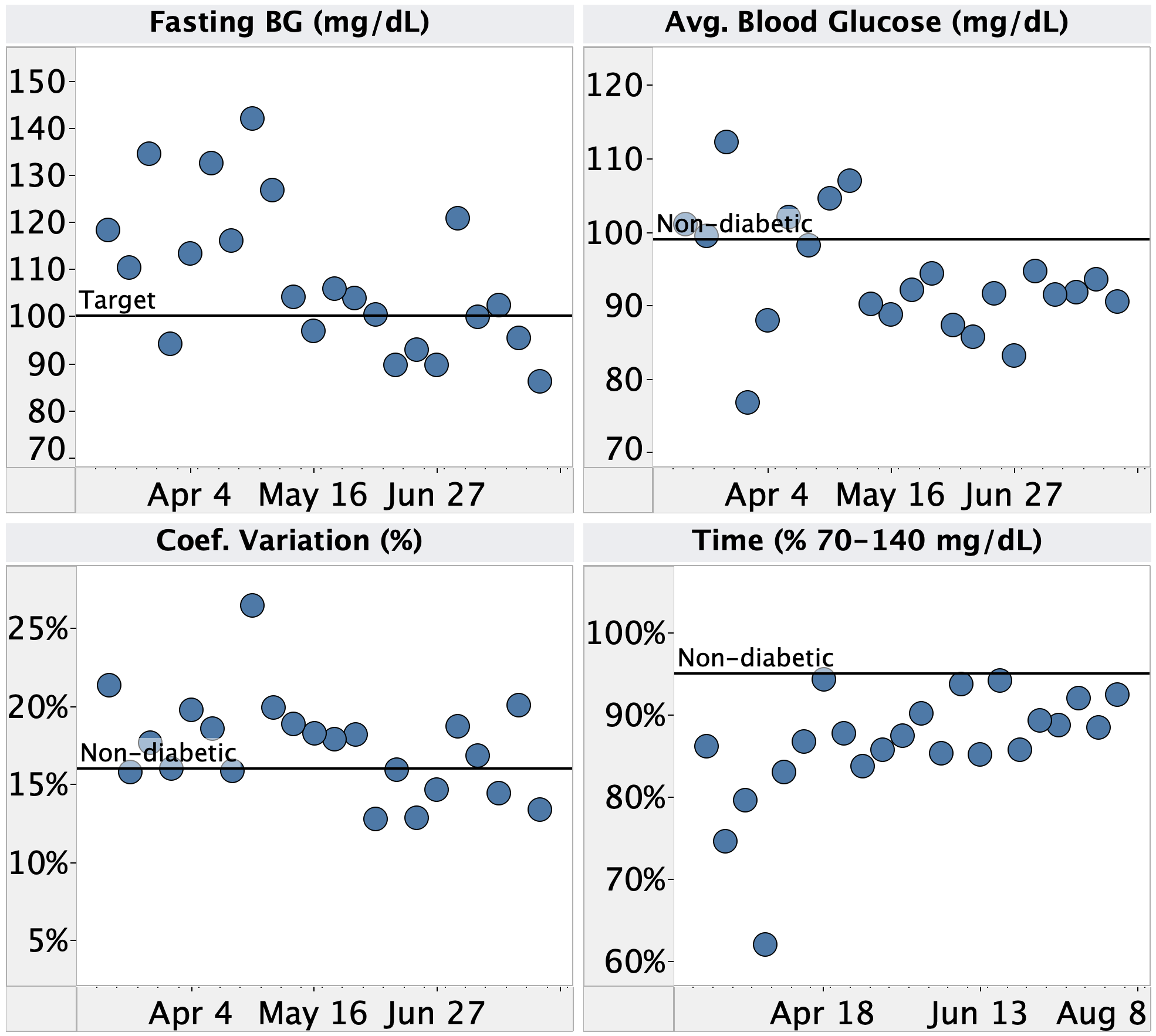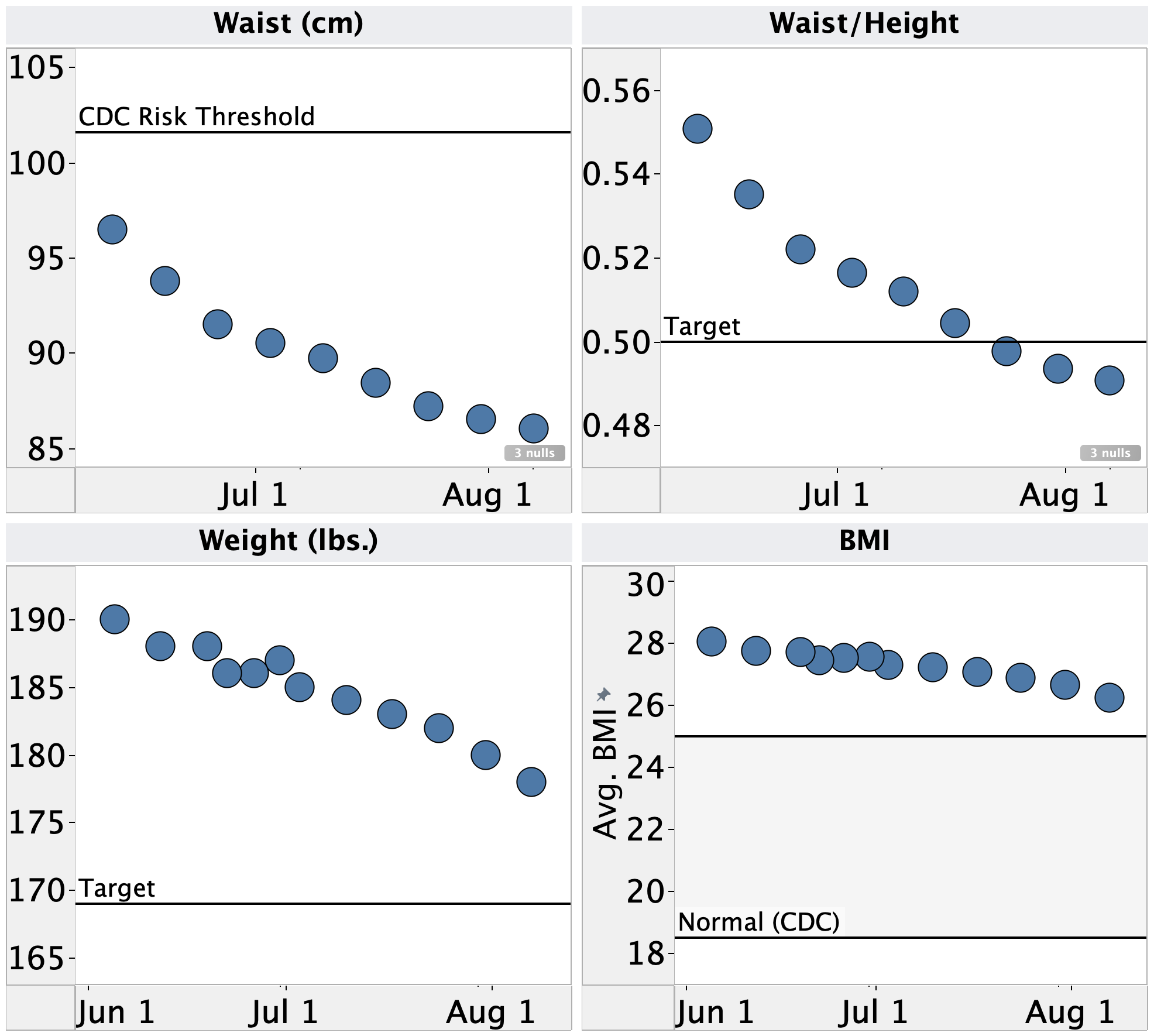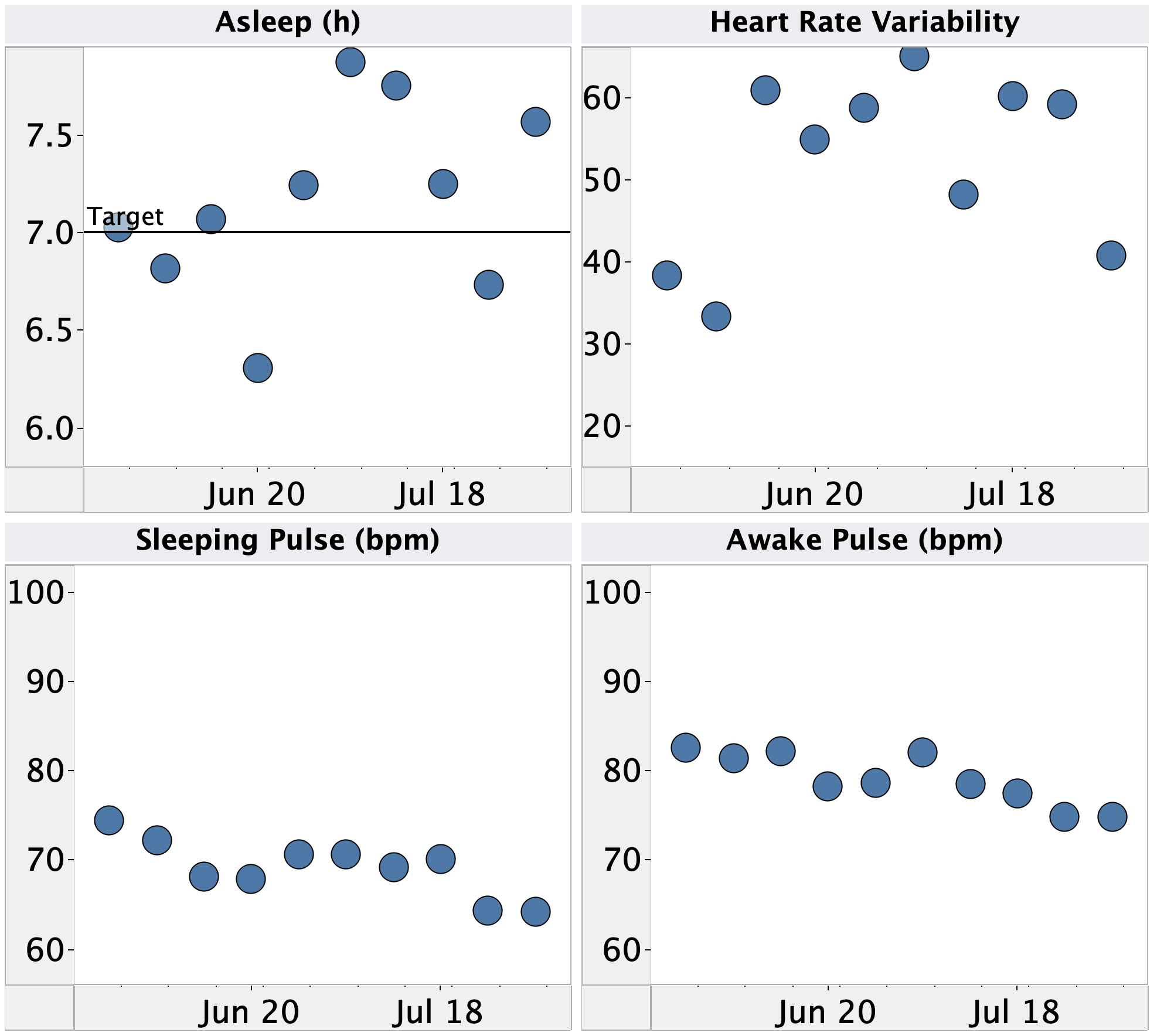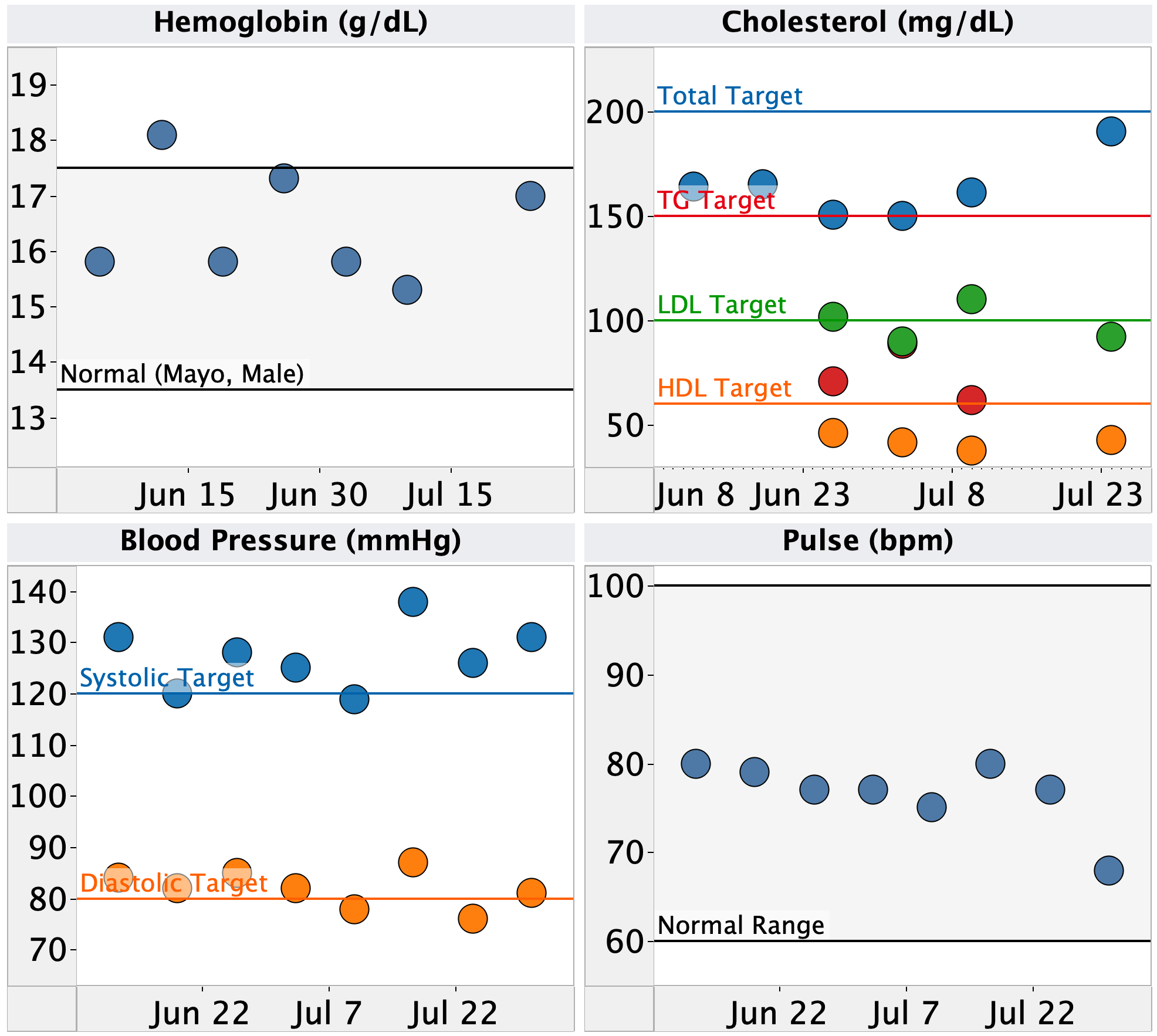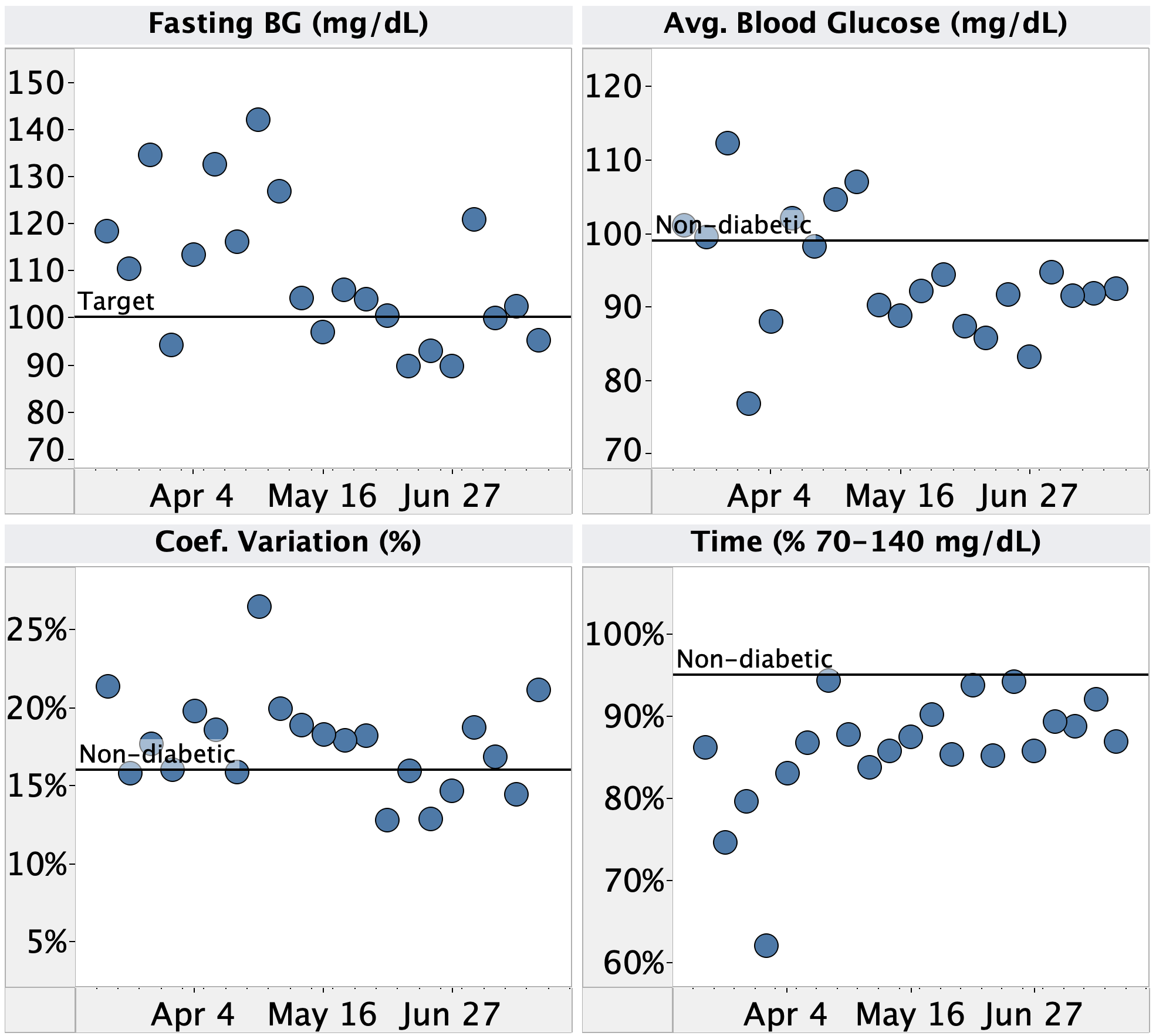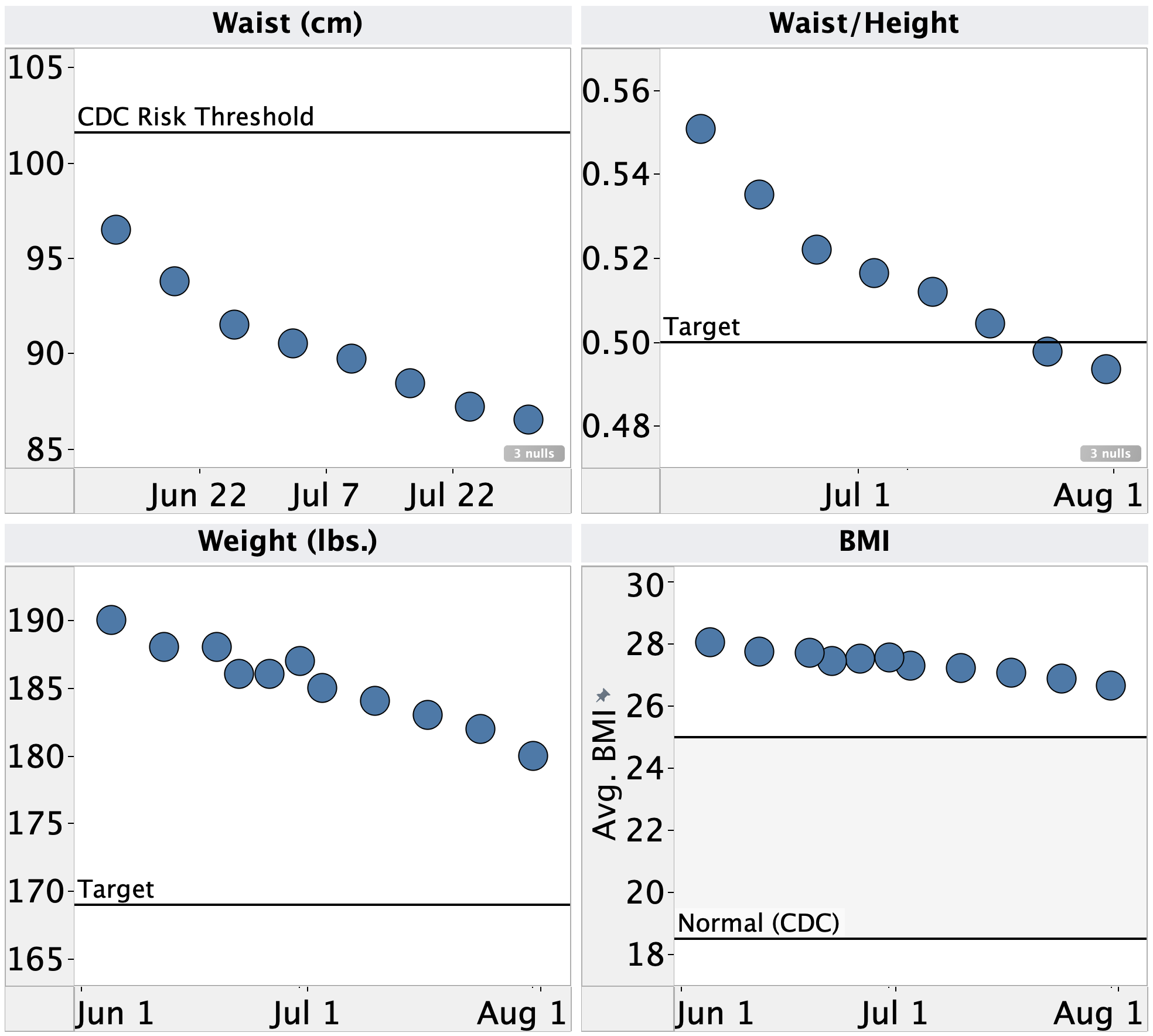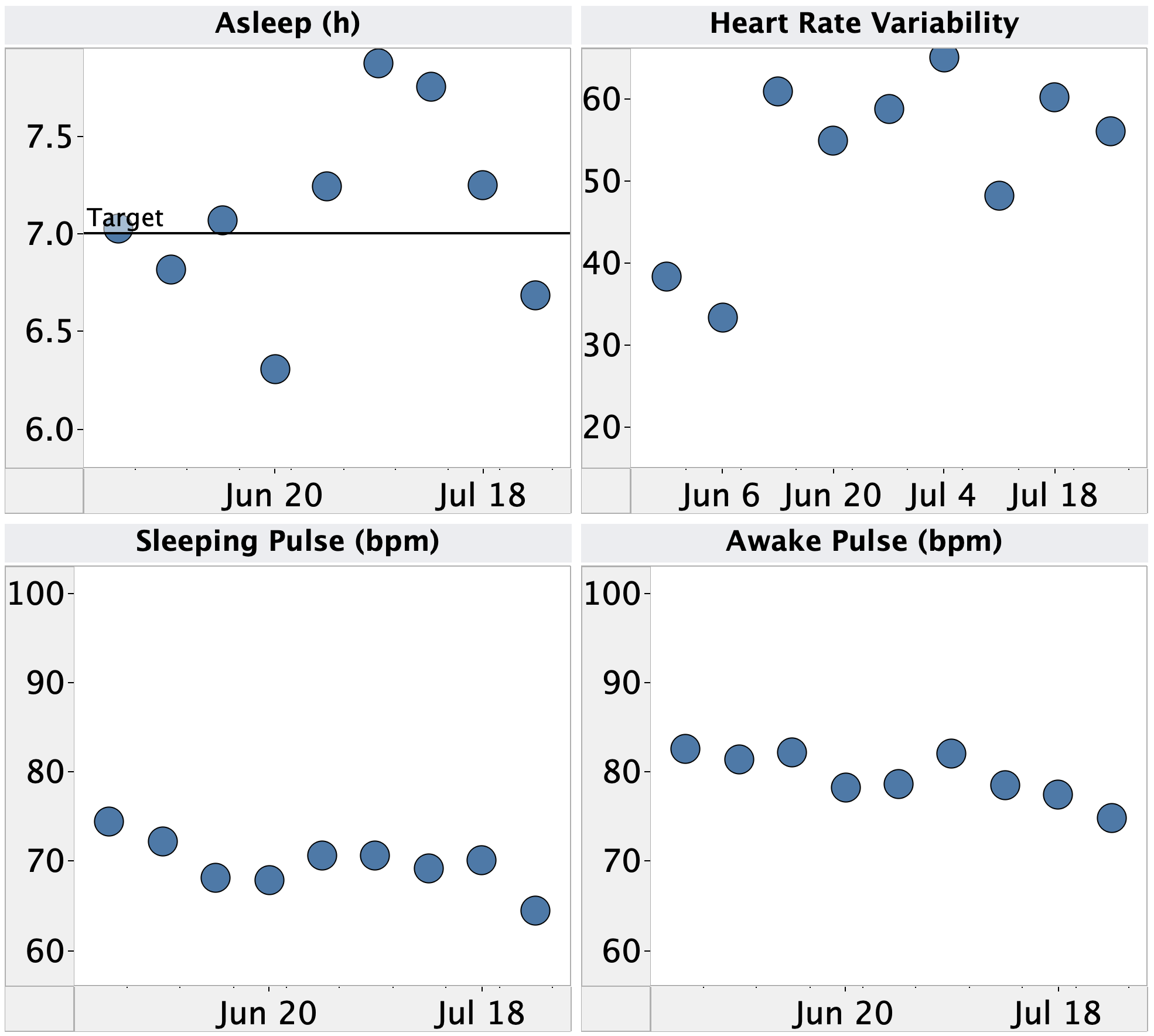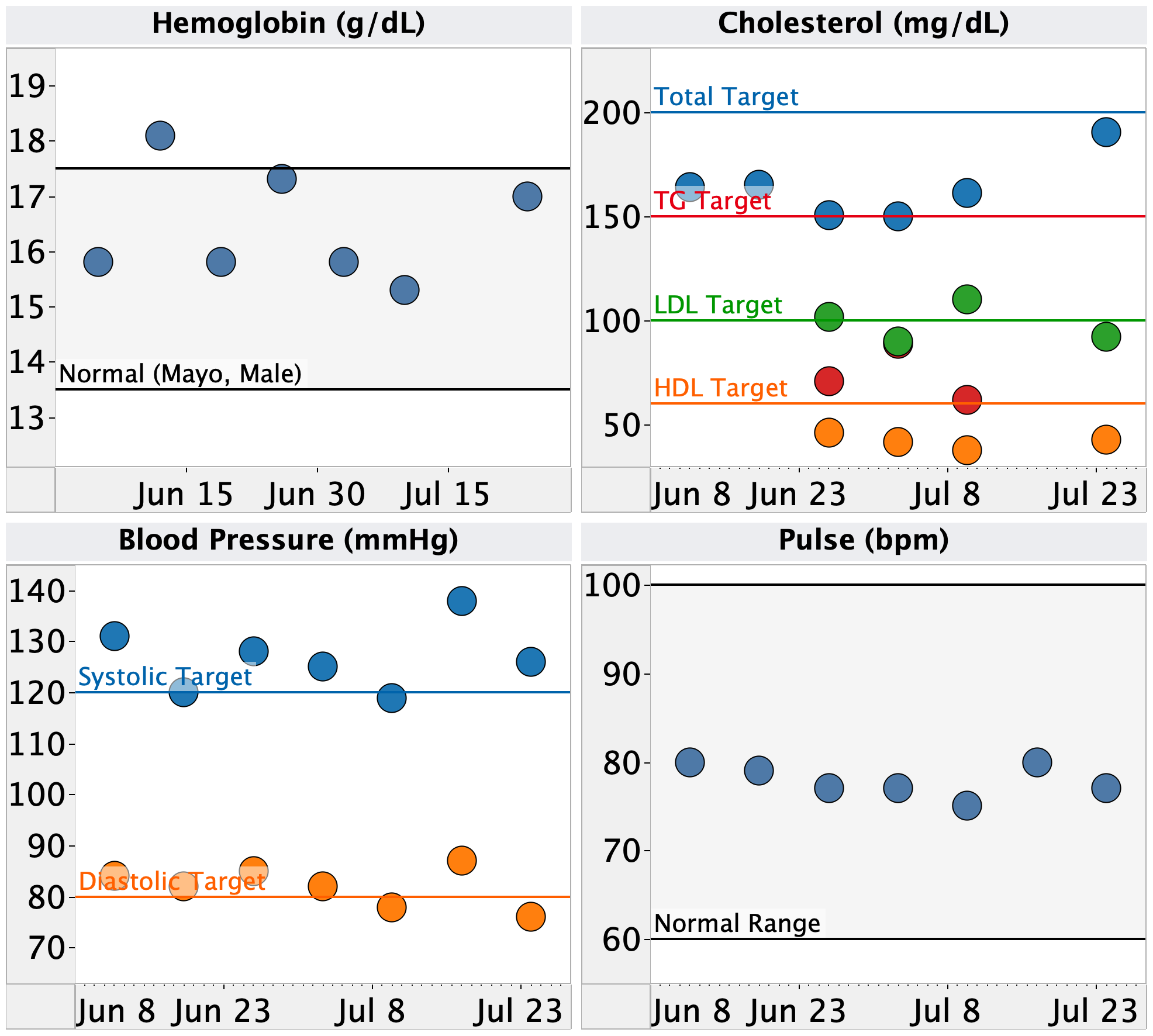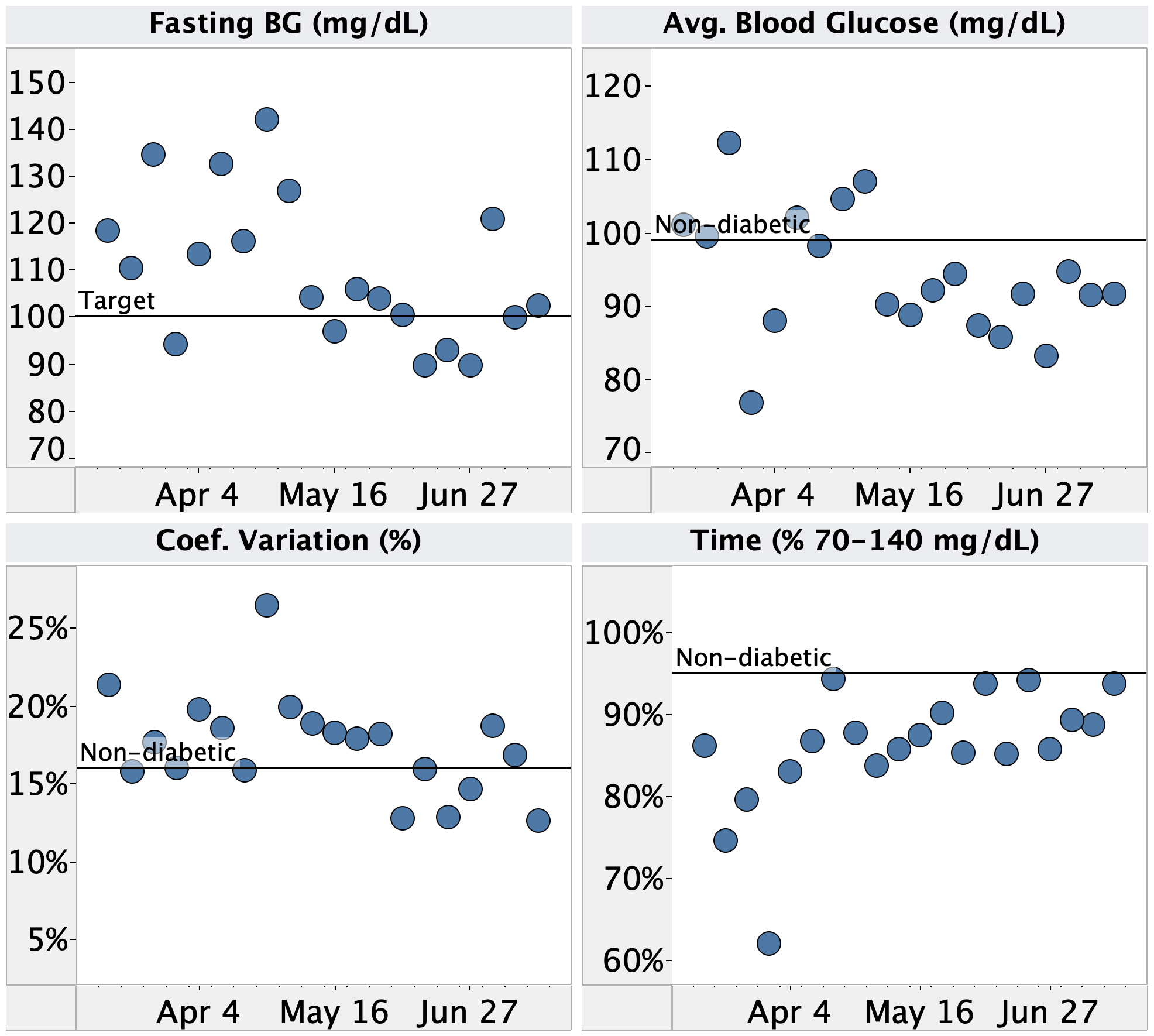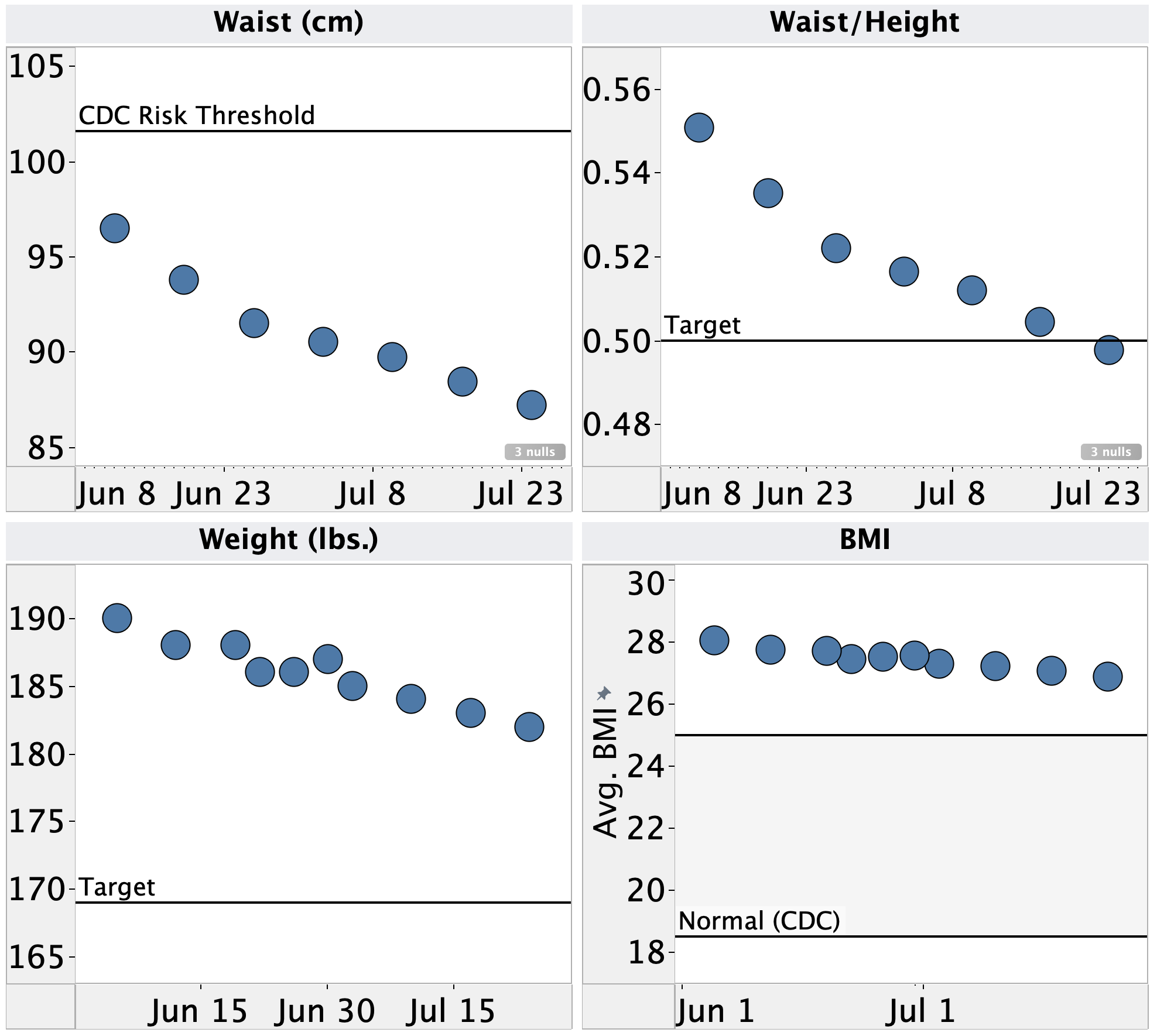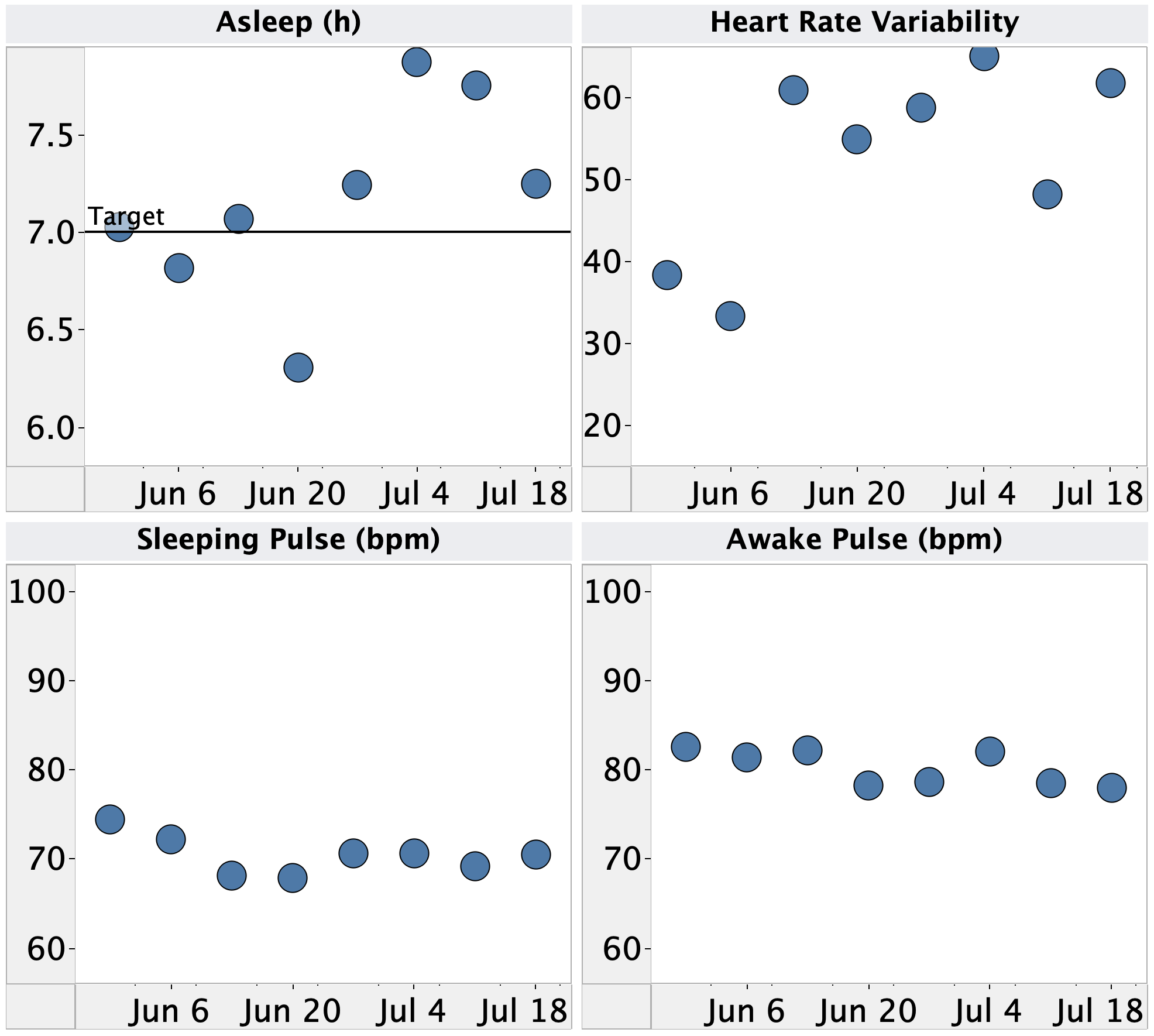For those checking the dates, I post these with a 1-week lag.
After 6 weeks, I’ve finally finished my blinded study of melatonin to increase sleep duration. Unfortunately, melatonin didn’t have any effect on my sleep duration, but I learned a lot about how (and how not) to measure sleep. Based on the results, I’m going to keep manually recording how I slept when I wake up and see if I can identify any patterns I missed when previously looking only at data collected from my watch.
On the food effect study, this week focused on low-carb breads. So far, almost all have a high blood glucose impact (40-60% of glucose based on area under the curve), but I got a bunch more recommendations from Reddit that seem promising and will be testing next week.
I simplified these status updates. Let me know if you do/don’t like the new format.
– QD
Active & Planned Experiments
- Comprehensive bloodwork:
- Goal: Establish baseline for a broad range of biomarkers and check overall health
- Approach: WellnessFX Premium panel
- Status: Complete, need to write up.
- Blood glucose impact of low-carb foods
- Goal: Check blood glucose impact of new low-carb foods I’d like to incorporate into my diet
- Approach: Follow the same protocol from my previous study
- Status:
- Methods of sleeping longer:
- Melatonin: Reported
Observations & Data
- Sleep:
- Two nights of insomnia this week resulted in a much lower average time asleep. Likely cause was my wife quarantining due to a COVID exposure (she’s fine). I always sleep poorly when she’s away.
- Blood glucose:
- Everything looking good. Still keeping an eye on positive trends in coefficient of variation, fasting BG, and time in range to see if they’re real.
- Body:
- I was able to stabilize my weight this week by adding an extra 200 calories to breakfast and continuing to eat more for dinner. I’m going to cut back on the dinner to finish my weight loss, but nice to see I know how to stop it when the time comes.
- Interestingly, change in waist measurement also flatlined, suggesting that I’m not doing any body recomposition, just straight weight loss.
- Blood:
- Hemoglobin was the lowest I’ve seen yet, close to the bottom end of the normal range. Keeping an eye on this…
- Pulse continues to drop on both the Omron (resting) and Apple Watch (sleeping & awake).
- Blood pressure has came back down a bit.
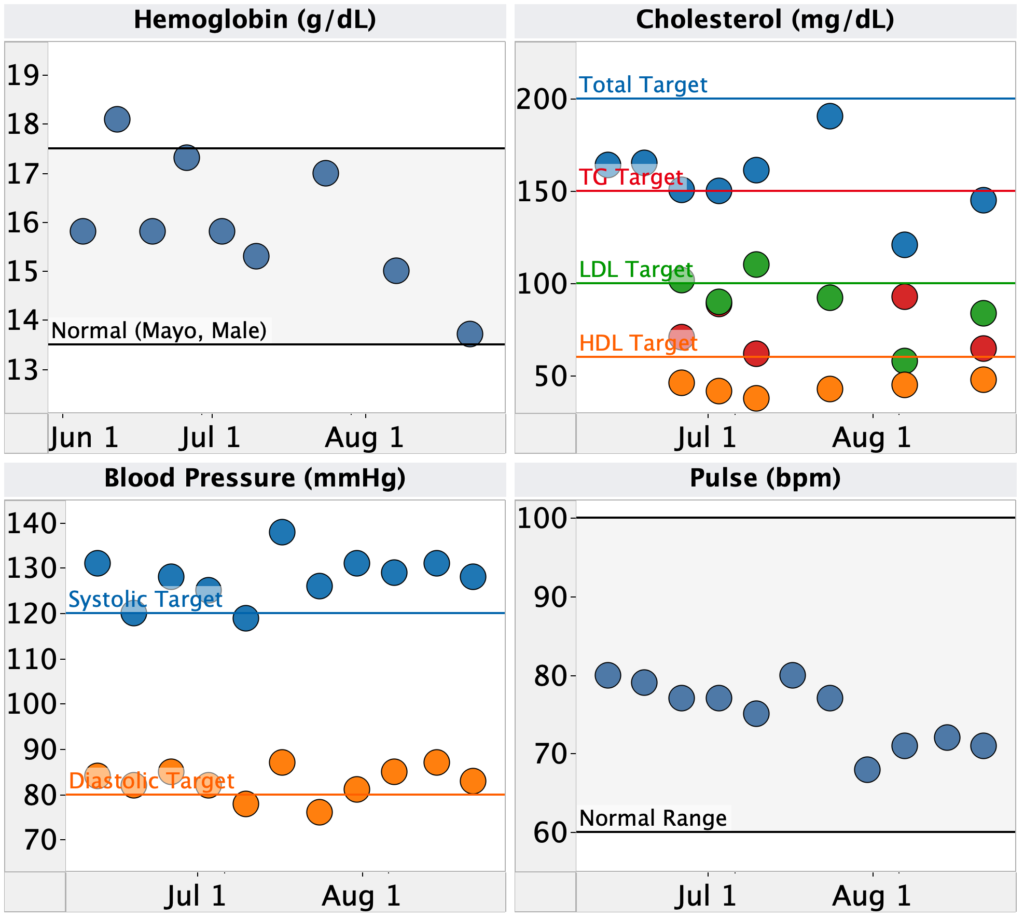
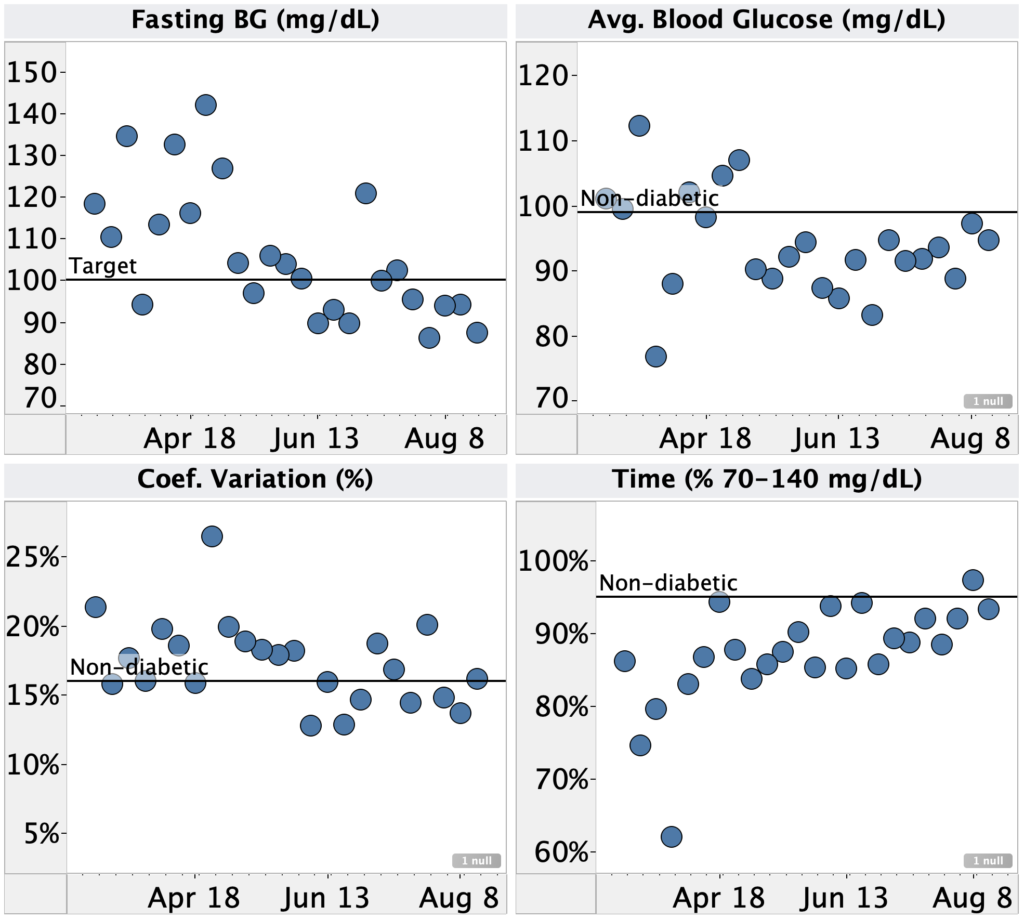
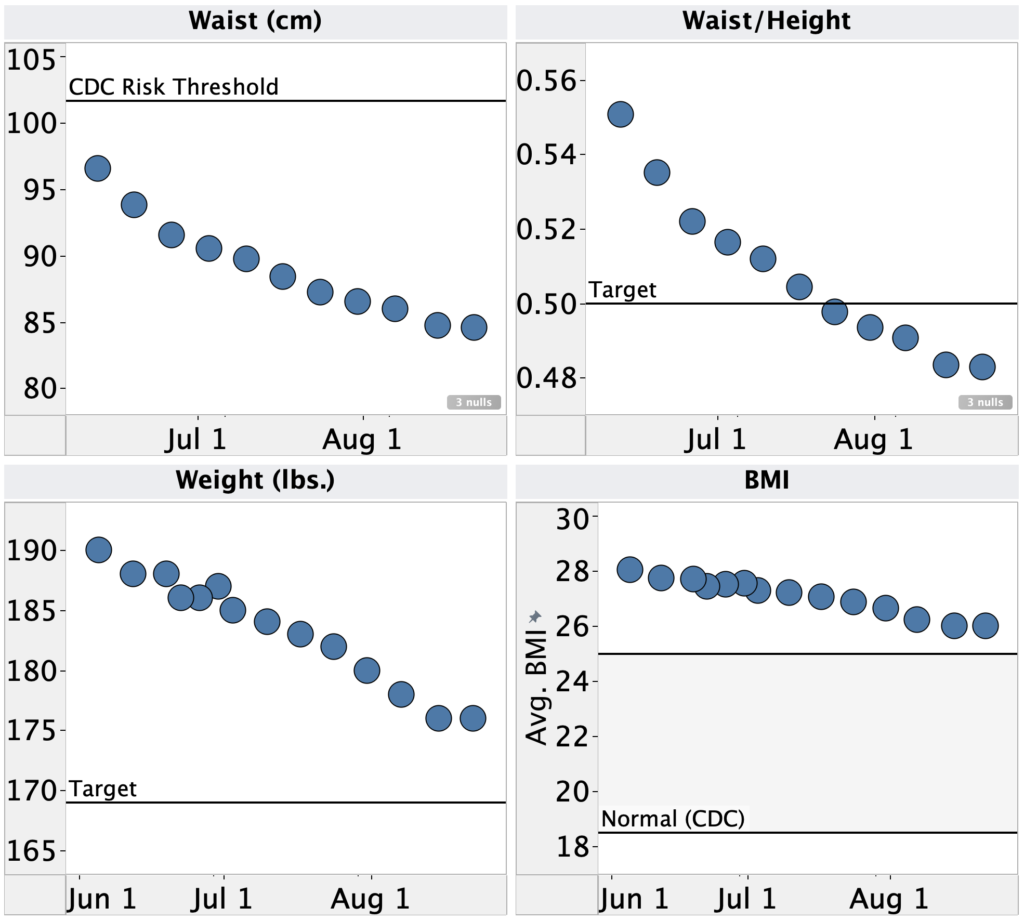
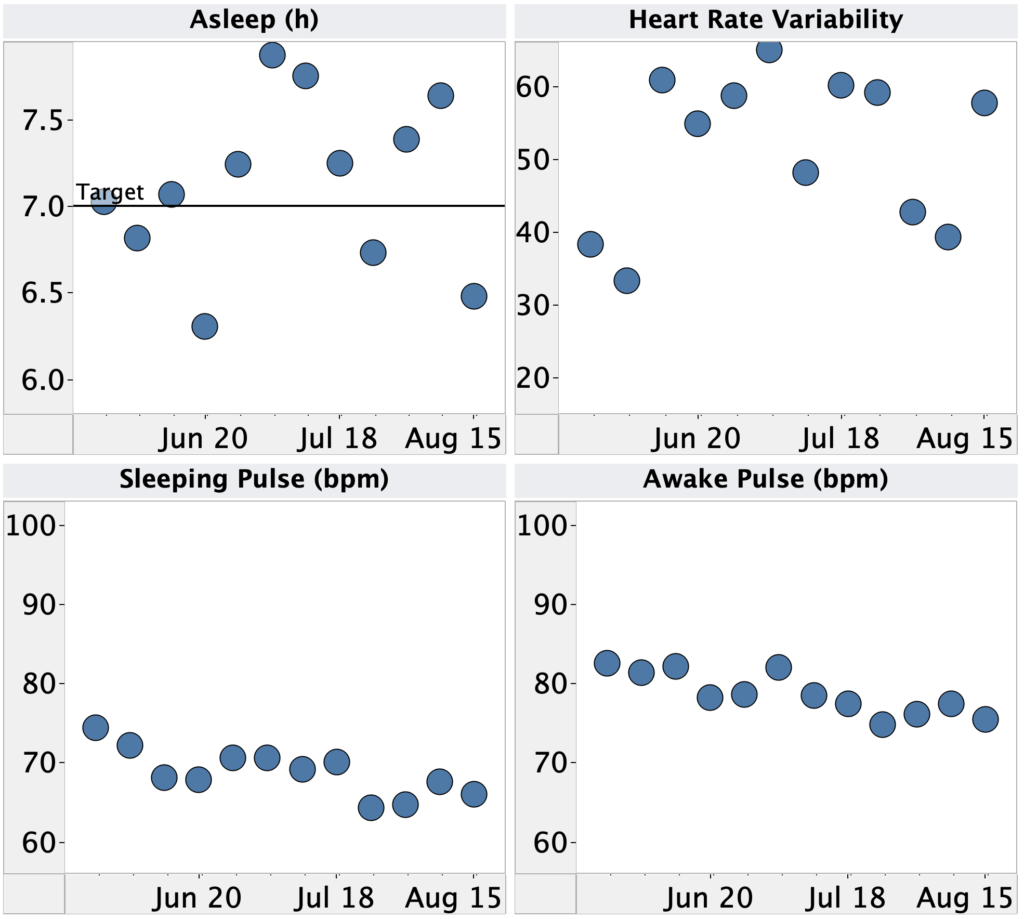
Methods
- Sleep:
- Metrics: total time, heart rate variability, pulse (sleeping vs. waking)
- Method: Apple watch + Autosleep app
- Frequency: daily
- Blood glucose:
- Metrics: fasting BG, Avg. BG, coefficient of variation, time 70-140 mg/dL, time <60 mg/dL
- Method: Dexcom G6 CGM
- Frequency: continuous
- Body:
- Metrics: weight, waist circumference, BMI, waist/height
- Method: scale + Renpho tape measure
- Frequency: weekly
- Other blood:
- Metrics: hemoglobin, cholesterol, blood pressure, pulse
- Method: Hemocue 801, Cardiocheck PA, Omron 10
- Frequency: weekly for blood pressure & pulse, every 2 weeks for hemoglobin & cholesterol
